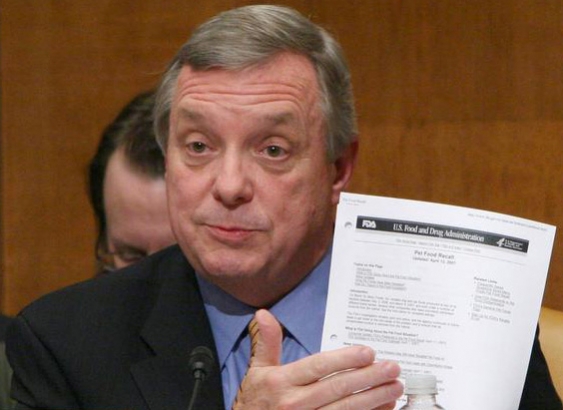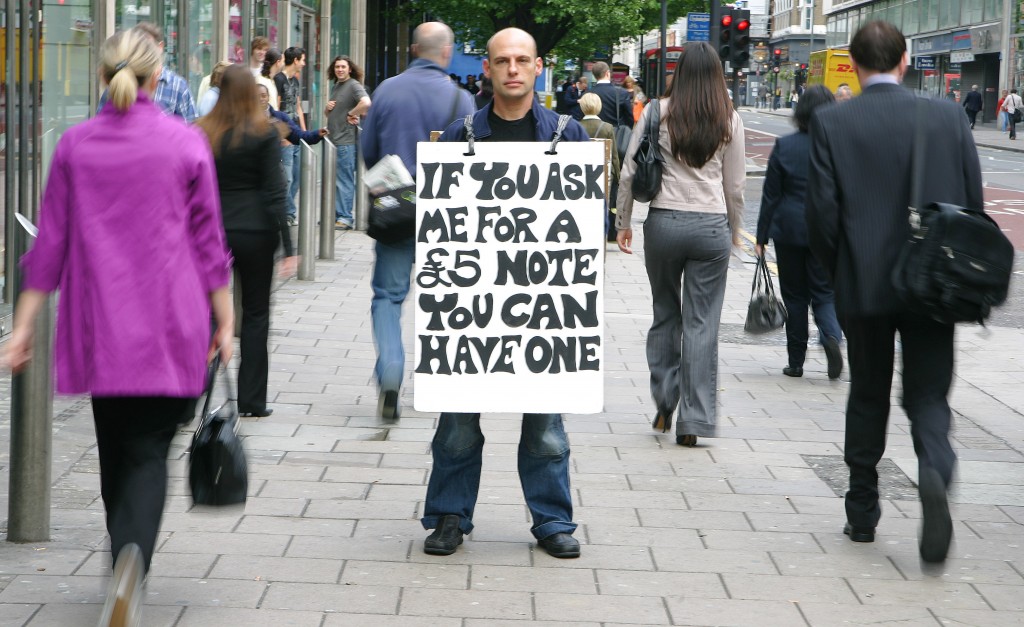This is a guest post from Bill Hazelton, CEO of Credit Card Assist, where he gives tips, news, commentary and advice on credit- and debit cards.
Last summer Congress passed the Dodd-Frank Wall Street Reform and Consumer Protection Act. At the last minute, Senator Dick Durbin introduced the “Durbin Amendment,” aimed at reforming debit card payment processing and fees.
The senior Senator from Illinois, Durbin has served in Congress since 1982, and since 1996 in the Senate. He’s been Senate Majority Whip since 2007.
He introduced the amendment to protect retailers whom he believed were losing money to debit card-processing fees. Some of his supporters claimed banks were colluding with credit card companies to extort exorbitant fees from merchants. Visa and MasterCard had had a stranglehold on payment processing and fee setting.
Senator Durbin anticipated merchants would pass savings along to consumers, especially in competitive markets.
The Federal Reserve estimated that capping processing fees at a reasonable level wouldn’t hurt banks unduly. Chairman Ben Bernanke agreed that retailers would probably pass along savings to consumers. The Fed also wanted to increase competition in the payment processing system, and give merchants freedom of choice.
The amendment went into effect October 1, 2011.
What the amendment changed
The process hasn’t changed: retailers pay a swipe fee (also known as an interchange or exchange fee) for each transaction. The fee is shared by the card’s issuing financial institution and the payment processing network (usually Visa or MasterCard). Financial institutions get a much larger share.
The amendment’s key provisions:
- The Fed sets a maximum transaction fee, of 21¢ + .05% . Card issuers that offer fraud protection can receive an additional 1%. This amount is roughly half of pre-amendment fees.
- Card payment networks must allow processing on at least two independent networks, effective immediately. Card issuers must do so by this coming April 1 (except for issuers of certain health-related cards, benefit cards and general-use prepaid cards, who can wait a year beyond that.)
- Merchants can institute a card-purchase minimum and/or offer discounts to cash or debit card purchasers, both of which were previously banned.
The way things were
Debit cards were generating more money and more transactions than credit cards. Debit cards’ use was also growing compared to checks and cash.
Card issuers typically received about 1.3% from each transaction. Swipe fees have increased, and now total about $48 billion annually. Debit card fees represent about $17 billion of that.
Visa and MasterCard have long held a duopoly, letting them force smaller retailers to pay high fees while offering better deals to large clients. A merchant’s only recourse was to refuse cards as a method of payment.
Financial institutions are unhappy
Even before the amendment went into effect, banks warned they’d have to tighten credit, and raise fees and interest rates, to make up for projected lost revenue. Bank of America and Chase threatened to cap debit card charges at $50 to $100, which would have rendered the cards basically worthless for everyday use, possibly pushing customers to use credit cards instead.
Already, some banks have rescinded free or rewards checking programs. And we’re all familiar with Bank of America’s ill-fated $5 per month debit card fee, now also rescinded after massive customer backlash.
The new interchange fee cap is much friendlier for banks than the originally proposed 12¢ cap. Nonetheless, bank revenue is estimated to drop around 40-50%, costing banks around $6.6 billion.
Financial institutions with under $10 billion in assets — community banks and all but three credit unions — are exempt from the new fee limit. Debit card transaction fees enable them to fund big-bank services. But many fear the new two-tier pricing structure won’t work, and they’ll have to accept lower exchange fees despite their exemption. Combined with the multiple processing network requirements, that could decrease revenue and force small banks to reduce services or increase fees. This leads to calls to protect specific advantages offered by credit unions.
Merchants may even refuse to accept small-issuer cards that have a higher swipe fee. This isn’t allowed, but it’s been hard to enforce and no one really expects that to change.
Small card issuers fear they’ll lose customers to big banks that can still offer broader services. Big banks also say they’re being forced to either increase service fees and risk losing customers, or simply accept lower revenue.
When Congress established the new fee limits, they didn’t consider fraud and other costs related to debit card transactions. Banks say greatly reduced future revenue won’t cover expenses. Critics argue that debit card fraud is much smaller than its credit card counterpart, so the lower risk supports lower fees.
Some large retailers claim “fraud risk coverage” is a smokescreen anyway, and that the credit card industry just doesn’t want to bother producing more secure cards, even though the technology exists.
The bottom line: income from debit card transactions will drop for all financial institutions. That’s about all we know.
Consumers may not benefit
Big institutions have or probably will:
- Add or raise checking fees
- Increase checking balance minima
- Lower or eliminate debit card rewards
- Raise out-of-network ATM fees
- Even sell customer information to retailers
Smaller banks have capitalized on this, promoting that they’re keeping free checking and not making debit cards onerous to use.
Card issuers are likely to promote credit-based services and prepaid debit cards, neither of which are subject to the new lower swipe fee. Some issuers are already offering low-interest credit cards and increased reward programs. Some people argue that increased credit card use will increase consumer debt, and that low and moderate-income consumers may be hit hardest, as banks institute higher fees for necessary services.
In the past, merchants either absorbed swipe fees or raised prices to offset them. Now, they can charge customers directly, adding a fee on top of the merchandise price.
Merchants may not benefit, either
Consumers have typically paid the same price regardless of payment method, but merchant rates vary considerably for debit, credit and premium cards such as reward credit cards. Merchants may not gain much if consumers simply switch to credit cards or checks, because swipe fees are higher for credit cards and checks are slower and riskier.
Visa and MasterCard are predicted to increase credit card fees for “small ticket purchases,” so merchants may retaliate by refusing Visa debit cards. Merchants can now set minimum or maximum transaction amounts, which could result in more use of cash or checks, or customers could take their business elsewhere.
Many financial industry thought leaders believe it’s unlikely retail prices will drop. Others say merchants could actually increase sales by subsidizing debit-card holders, and they note that merchants benefit indirectly from bank advertising that encourages shopping.
Unintended consequences
In 2010 the Mercator Advisory Group published a report entitled “The Durbin Amendment: Impact Analysis”, before the amendment passed.
In addition to the issues noted above, the report identified unintended consequences that critics have disparaged:
- Prepaid debit cards are now commonly used for payroll and government benefits. If state and federal agency revenue drops, card recipients could be at risk for up-front fees. If card programs are eliminated and agencies revert to using checks, recipients could pay check-cashing and bill-paying fees.
- Profits from debit card transactions have funded development of new financial services products – like mobile payment, and next generation smart cards. This could diminish, jeopardizing America’s position as global market leader.
- Processing networks may institute non-transaction-based fees to recoup lost revenue, or be slower to offer merchants new ways to receive payments electronically.
- Diverting resources to implement the changes mandated by the amendment may hamper financial institutions’ participation in economic recovery efforts.
- Regulating just one portion of the financial services industry could spawn entities that offer non-regulated services.
Debit card revenue has been a powerful profit center for financial institutions. The electronic payment processing system is tremendously complex. Whether the provisions of the Durbin Amendment will benefit consumers and merchants, we still don’t know.
**This article is featured in the Carnival of Personal Finance (336th Edition)**





